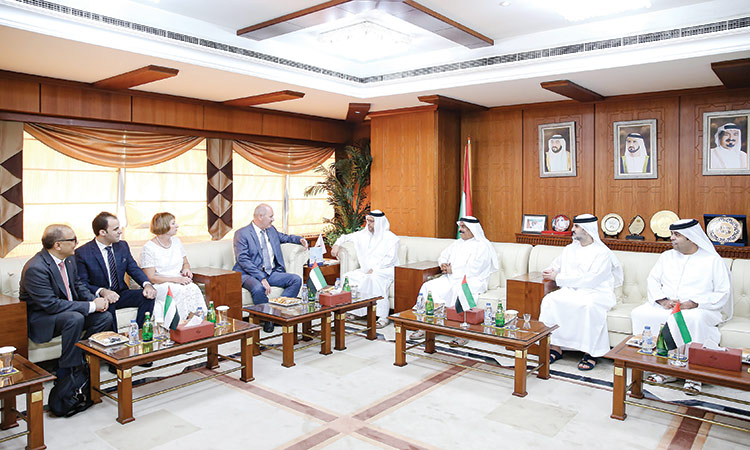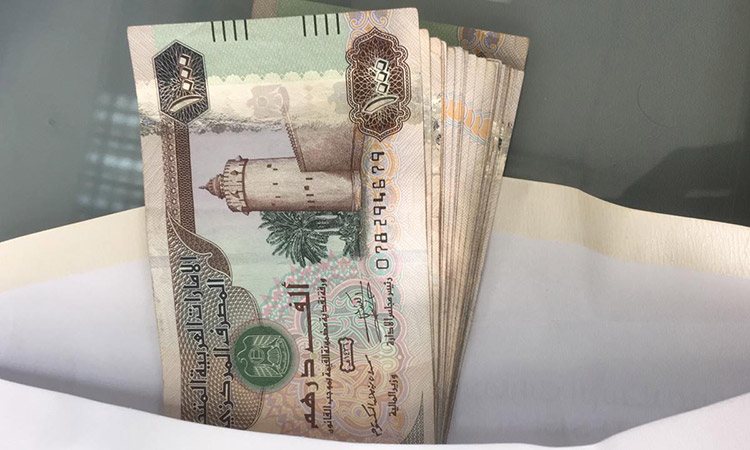UAE economy likely to grow 5.1% this year, forecasts IMF

Picture used for illustrative purposes.
Inayat-ur-Rahman, Business Editor
The International Monetary (IMF) has revised the UAE’s economic growth forecast upward for 2022 and 2023 in the latest report. According to the IMF’s World Economic Outlook report released on Wednesday, the UAE’s gross domestic product (GDP) is projected to grow 5.1 per cent this year as compared to its previous forecast of 4.2 per cent. It would be the highest growth in the past seven years.
The International Monetary Fund projects Middle East and North African GDP will grow by 5% this year, up from 4.1% in 2021, before slowing to 3.6% in 2023 as global conditions worsen, a senior official said on Thursday. Inflation in Mena was projected to average 14.2% in 2022 and to remain high next year, driven by food and energy prices.
GDP growth among the oil exporting nations that benefit from expensive oil will outperform, the official said. The region had resisted a “confluence of shocks” such as volatile commodity markets, a global slowdown and a tightening of global financial conditions, Jihad Azour, Director for the Middle East and Central Asia department at the IMF, told a news conference. But he said the “multispeed recovery” of 2022 will slow as “the worsening of global conditions will weigh on the outlook for next year”.
Regional oil exporters, comprising the six Gulf Cooperation Council (GCC) states, are expected to outperform peers with projected growth at 5.2% this year boosted by high oil prices and robust nominal GDP growth to help offset global headwinds. Here too, Azour said economic activity would slow next year as Opec+ output cuts take effect, and oil prices decline, and global oil demand decreases.
Warning that inflation threatens to become “a runaway train,’’ the managing director of the International Monetary Fund urged policymakers to keep up the fight against rising prices even it means more pain at a time of extraordinary economic turmoil. Speaking to reporters on Thursday, the IMF’s Kristalina Georgieva said that the world economy “has been hit by one shock after another — the coronavirus pandemic, Russia’s invasion of Ukraine and a resurgence of inflation.
But reining in rising prices should take priority, she said. “If we do not restore price stability, we will undermine prospects for growth,’’ she said, adding: “We cannot possibly allow inflation to become a runaway train — bad for growth, bad for people, bad especially for poor people. The Federal Reserve and other central banks have been raising interest rates to tame inflation. on Thursday, the US reported that inflations accelerated in September, with the cost of housing and other necessities intensifying pressure on Americans.
Consumer prices rose 8.2% compared with September of last year. Georgieva acknowledged that the higher borrowing costs would pinch economic growth, but she urged policymakers to show restraint in spending money to ease the pain. “When monetary policy puts a foot on the brakes, she said, “fiscal policy should not step on the accelerator. Governments, many of them already heavily indebted after battling the pandemic, should focus on helping the most vulnerable at a time of food shortages and punishingly high energy costs, not on broader spending programs.
“Policy measures need to be well targeted, and they need to be temporary,’’ she said. Georgieva’s call for inflation vigilance comes at a time when some economists worry that central banks will overdo interest rate hikes and cause unnecessary economic pain. Georgieva also warned that the “fragmentation’’ of the world economy into competing political blocs could cause inflation to linger. If geopolitical tensions cause companies to move their supply chains - out of China, for instance - production could become less efficient and more expensive.
And central bank rate hikes couldn’t do much about it. “If we lose the benefits of a more-integrated global economy, we all would be poorer, she said. Georgieva made the comments as the world’s financial leaders gather in Washington for the fall meetings of the IMF and World Bank. ritain has had its knuckles rapped over its controversial debt-fueled budget at the IMF’s annual meetings, with the crisis lender’s chief urging London on Thursday to maintain “coherent and consistent” policies.
IMF officials -- from the institution’s top economist to its managing director -- have had their say about Britain’s fiscal choices this week after already warning last month that the measures would increase inequality. IMF chief Kristalina Georgieva said she had a “very constructive” meeting with Kwarteng and Bailey.
“We discussed the importance of policy coherence and communicating clearly so there can be no -- in this jittery environment -- there could be no reasons for more jitters,” she said at a news conference.







